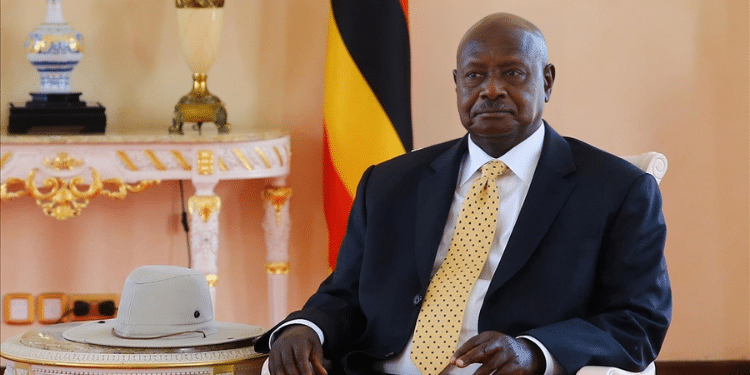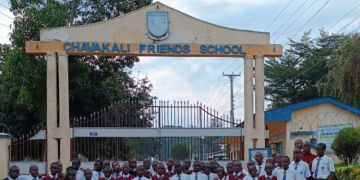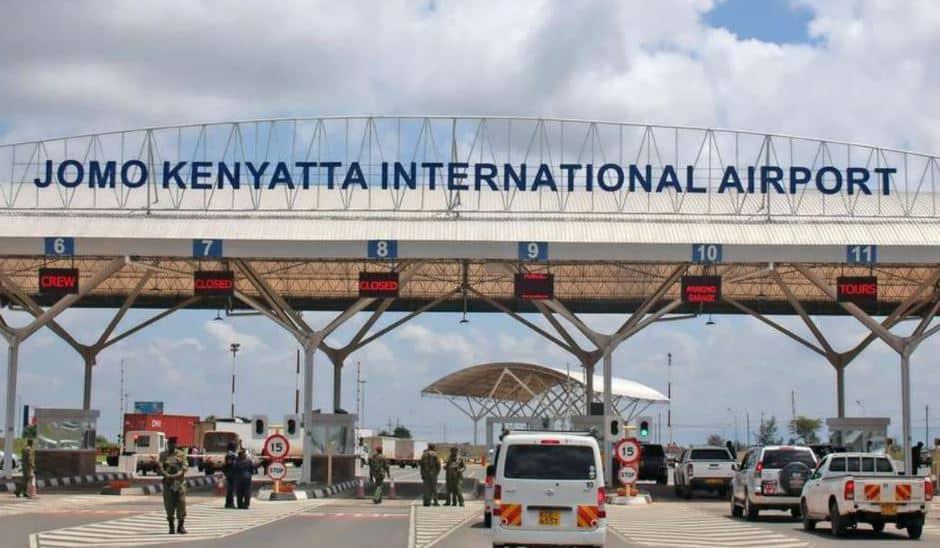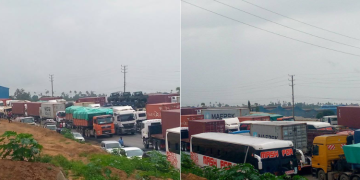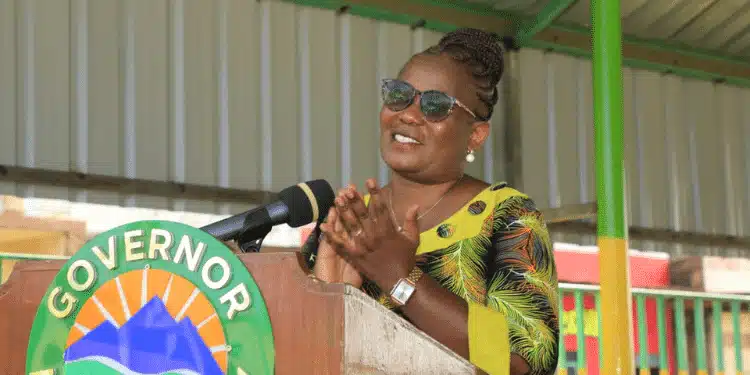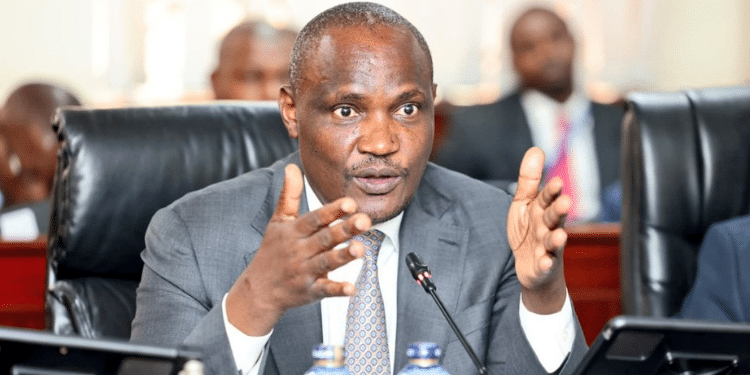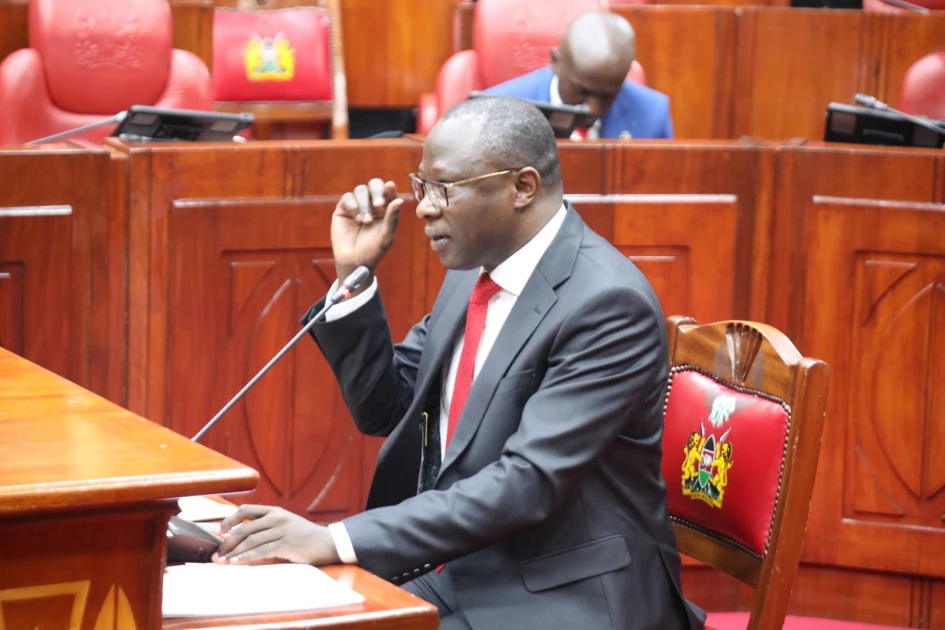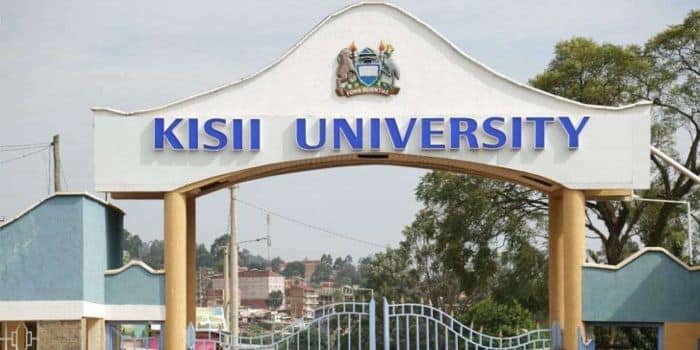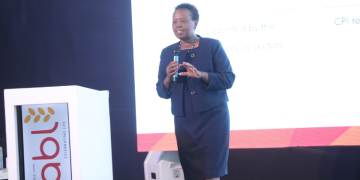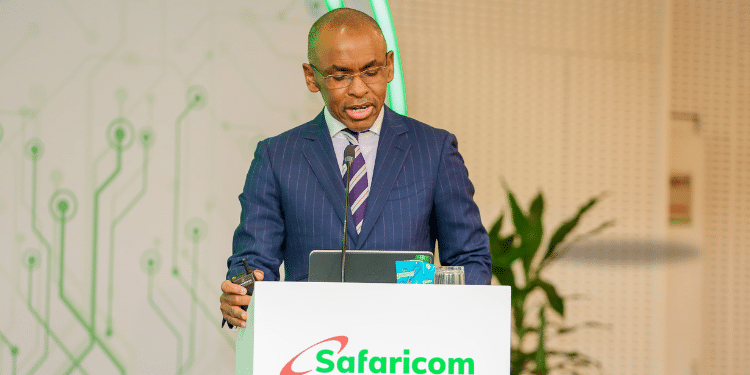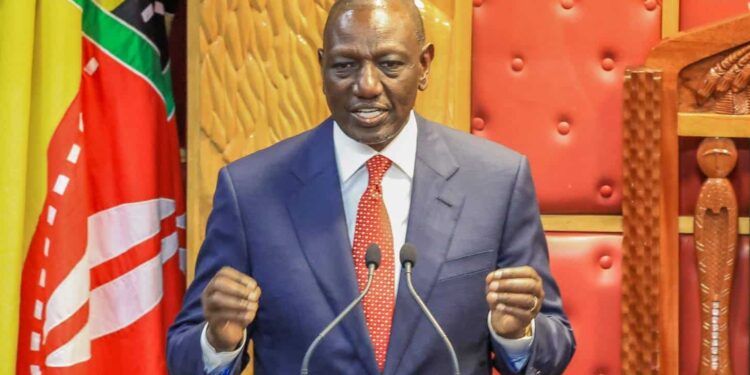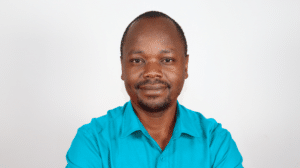President William Ruto on Thursday, November 21 delivered his second State of the Nation Address in Parliament. Ruto gave his scorecard highlighting successes that his administration has achieved so far, ranging from the economy to democracy. Here is his full speech:
“
- I am honored to address you today in fulfilment of the mandate vested in me under Article 132(1)(c) of the Constitution, to report to you and to the people of Kenya on the measures we have taken and the progress we have made in realising our national values and principles of governance, and to submit to you, honourable members, the progress made in fulfilling our international obligations.
- Since my last address, Kenya has undergone rapid change occasioned by the collective awakening of the people in the understanding that the state of nation depends on the work we do, individually and collectively. This realisation extends not only to what we choose to undertake, but also to how we go about securing careers, livelihoods, and contributing to the grand enterprise of nation-building.
- There has never been doubt, and now there is none whatsoever, that Kenya is a land of bold ambition, with our citizens always desiring and insisting on the best possible standards not only for themselves, but also for their families and the nation. Consequently, our democracy has empowered citizens to ask questions and demand changes in the way their affairs are managed, driving the wheels of the nation’s social, political, and economic transformation faster in the direction of excellence and prosperity. Rare are the times when leadership is ahead of the people; we are always striving to steer the machinery of State and government to keep pace with the aspirations of citizens.
- We have learnt, through the hard as well as more customary ways, that listening is a full-time occupation of leadership, and that all questions asked by the people must be answered thoroughly and in full. We have learnt never to take anything for granted, and make every effort to carry all our people along with us in our pursuit of our transformation.
- The context in which I make this national address is not only significantly different from previous occasions, but it is also a singular moment with unique historical implications for us all. It is an opportunity to affirm the principles and values on which our nation stands, review the steps we have taken, the path we have chosen in our journey of national development and reinforce the commitments we have made to one another and to our beloved nation for the sake of present and future generations. I do not take this for granted and, with utmost respect and humility before this august assembly of the people’s elected representatives, I desire to respond to the most pressing concerns that have been raised by Kenyans of all walks of life in recent months.
- To my understanding, the concerns and issues voiced by millions of Kenyans about the state of our nation deserve meaningful engagement, thorough understanding and thoughtful response.
- There are discussions about whether leaders understand the pain, hardship and struggles endured by countless citizens everyday as they strive to make ends meet, and whether the government is doing anything about it. Similarly, many struggling Kenyans impatiently wonder when real money will get into their pockets, and when the promised jobs they deserve will become a reality.
- Additionally, there have been conversations about our education system, particularly the transition to the Competency-Based Curriculum (CBC), and whether policies in this sector are working for or against Kenyans.
- Important questions have also been raised concerning the direction of developments in relation to democracy, human rights and fundamental freedoms, as well as the rule of law, transparency and accountability.
- Another more direct question that emerges every now and then is whether public policy under this administration is in furtherance of service delivery to citizens or just in aid of political strategy.
- It is undeniable that, for many Kenyans, times are hard and the struggle to meet their daily basic needs remains daunting. It is also true that these conditions have persisted for a number of years now, leading to much frustration and anxiety. Although we have gone some way to mitigate some of these difficulties, much remains to be done, though we have laid a firm foundation for decisive intervention. I believe that it is critical for us to bear in mind that this administration was inaugurated at an extremely difficult time characterised by domestic economic challenges, compounded by regional and global security, geo-political, financial, as well as climatic dynamics.
- As a result, in 2022, the country’s total debt burden was not only immense, but it was also stacked up in a most burdensome manner, leaving little to no room for investment in public services or development of critical infrastructure. The prices of basic food commodities soared as a result of a combination of prolonged drought, declining local productivity due to inadequate support, and disruptions in global supply chains caused by the war in Europe.
- Kenya faced a crossroads of extremely difficult choices, where defaulting on our obligations would have significantly worsened an already perilous situation and more borrowing was out of the question. It was therefore essential for us to drastically reduce expenditure, mobilise as much resources domestically as possible, and curtail waste.
- As I informed the nation then, matters were going to get more difficult before they got better, and we all had to tighten our belts and work hard under very unforgiving conditions. We had staked the fate of our ambitious Bottom-Up Economic Transformation Agenda on easing the stress that the economy was in, and the strain citizens underwent, while creating room for the implementation of our transformative interventions.
- I give this background to underscore two important facts. First, we have not been watching helplessly and doing nothing as adversity took a toll on the economy and undermined the livelihoods and well-being of the people. On the contrary, we have been working tirelessly to steer the country away from the brink of unprecedented economic collapse and onto a more promising trajectory. The second point is that while we may not be where we would like to be, we are certainly not where we were two and a quarter years ago. At the time, the cost of living was substantially high, with prices of basic food commodities beyond the reach of many households.
- Today, I am proud to report that all macro-economic indicators point to a positive turnaround and an upward trajectory. Allow me to highlight a few milestones that underscore this progress: The shilling has stabilised significantly, appreciating from KSh162 to the dollar in February 2024, to KSh129 today, a remarkable gain of 20%. This recovery has restored confidence in our financial markets and significantly reduced the cost of servicing external debt, creating vital fiscal space for our development imperatives.
- Inflation has declined dramatically from 9.6% in September 2022 to 2.7% in October 2024, the lowest rate in 17 years.

This achievement has been the consequence of favorable weather, and our deliberate efforts to support farmers with affordable inputs including subsidised fertiliser, leading not only to increased production but also productivity, and lowering the prices of many cereals, including maize, and pulses such as beans and peas.
- Our foreign exchange reserves have surged by $2.4 billion to hit a record $9.5 billion, providing 4.8 months of import cover, the highest in 10 years. This resilience shields us from external shocks in the global economy and restores investor confidence. Interest rates are also trending downward, reducing borrowing costs and freeing up fiscal space for growth-enhancing initiatives by businesses. Tax revenues have grown by 11.5% in the year to June 2024, reflecting the success of our tax base expansion measures. The economy continues to grow steadily, recording a 5.6% growth rate in 2023, among the highest globally. We project 5% growth this year and 5.6% in 2025.
Honourable Members,
- Our efforts to secure food security and stability are already bearing fruit. Since February, we have distributed subsidized fertiliser to 6.45 million registered farmers in 45 counties, enabling them to increase their yields. This year we have procured and through e-vouchers distributed 7 million bags of both planting and top-dressing fertilizer to boost food production across the country. This intervention will see a projected increase in maize production to a record of 74 million 90 kg bags. We have also concluded long-term agreements with eleven suppliers of assorted fertiliser so as to make this commodity available all year round. Fertiliser for the long rains season will be stocked in outlets nationwide, ensuring our farmers are ready to plant, grow and produce.
This forward momentum will not only increase our agricultural output, but also reduce our reliance on costly food imports, securing a more self-reliant and prosperous Kenya.
- This approach, rooted in my administration’s policy to support production rather than subsidise consumption, has already made food more accessible and affordable to households. Today, Kenya boasts substantial national stocks: 47 million 90kg bags of maize, 8.8 million bags of beans, 10.4 million bags of wheat and 2.1 million bags of rice. Slowly but surely, we are building a food-secure Kenya where families need to worry less about their next meal.
- In the sugar sector, we have achieved a historic milestone. All
17 sugar factories across the country are now operational, producing at impressive levels, while four new sugar factories are under construction. In July alone, domestic sugar production reached 84,000 metric tonnes, surpassing the national monthly consumption average of 40,000 metric tonnes. For the first time in recent history, Kenya is producing enough sugar to meet local demand. This success is attributed to subsidised fertiliser for sugarcane farmers, an additional 500,000 acres of land brought under production, and improved management of the sector, which have revitalised production and brought the industry back to life. I just signed the new sugar law to provide further policy guidance, as we seek to be a sugar exporting country.
- In the coffee sector, we are on track to increase exports from 51,000 metric tonnes to 150,000 metric tonnes by 2027. The government has also raised disbursements through the Cherry Advance Fund from KSh 2.7 billion to KSh 6 billion, complemented by an additional disbursement of KSh 1.5 billion by the Commodities Fund.
Average prices at the Nairobi Coffee Exchange have risen by 25%, and in the last financial year, the country produced and exported 48,000 metric tonnes, earning farmers KSh 25 billion. Additionally, 320,000 bags of fertilizer have been allocated specifically for the coffee sector. These interventions are expected to boost smallholder farmer earnings from KSh 300,000 to KSh 500,000 per acre annually by the end of 2027.
- The dairy sector remains a vital value chain with a quick turnaround impact on households and the economy. The government has released KSh 3 billion to modernise the New KCC, ensure farmers are paid on time, and maintain a high price of KSh 50 per litre. As a result milk intake to KCC has increased from 100,000 liters to 220,000 liters a day. Other strategic interventions include the extension of duty-free imports for feed manufacturing raw materials, subsidised artificial insemination services, and the reduction of sexed semen costs from KSh 7,000 to KSh 2,900 through the Kenya Animal Genetic Resource Center.
- These measures have led to a 14% increase in milk production, from 4.6 billion litres in 2022 to 5.2 billion litres in 2023, with projections exceeding 6 billion litres this year. The value of exported dairy products has nearly doubled, rising from KSh 4.8 billion in 2022 to KSh 7.2 billion in 2023. These gains demonstrate how targeted policies can deliver tangible benefits to dairy farmers and drive growth in the economy.
- By 2022, the education sector was in crisis, with a lack of clarity in the transition to the Competency-Based Curriculum (CBC), a shortage of 110,000 teachers, and 23 out of 40 public universities were technically bankrupt and at risk of closure.
Among those facing severe challenges were large institutions such as the University of Nairobi, Kenyatta University, Moi University, Egerton University, Maseno University and Masinde Muliro University.
- To address the issues in our education sector, we have already hired 56,000 teachers and are in the process of recruiting another 20,000 by January 2025. We have also ensured the seamless transition of learners from Primary to Junior Secondary School, and domiciled Grades 7, 8 and 9 in primary schools, optimising the use of existing infrastructure, ensuring the safety of young learners and protecting parents from the high costs associated with boarding schools.
- Recognising the financial challenges faced by universities and TVETs, we introduced a new student-centred Higher Education Funding Model. This model gives priority to the most vulnerable students, offering them up to 95% government support, while also pulling our universities back from the brink of collapse. The remaining challenges for a few universities like Moi University are related to internal administrative and governance issues, which are being addressed.
- To further enhance access to higher education, we launched the Open University of Kenya, paving the way for more students to achieve their academic goals. The institution’s first cohort of students is scheduled to graduate next week on 29th November 2024.
Honourable Members,
- Universal Health Coverage is a cornerstone of our transformation agenda and a matter that touches every Kenyan family. Despite health being a devolved function, we acknowledge the immense financial burden that comes with it.
Counties have struggled with shortages of medicine, equipment and staff, hindering service delivery and leaving countless Kenyans with sub-optimal access to healthcare. It would have been easy for me to step back and leave this responsibility to counties alone, but that would have been a disservice to Kenyans and a betrayal of our Constitution.
- Instead of engaging in debates about healthcare being devolved, I have chosen the harder but necessary path of addressing these challenges head-on. Health delivery is not just about fulfilling a constitutional mandate, it is about ensuring that healthcare is not a privilege for the few who can afford it and pipe dream for many who cannot. For years, NHIF was saddled with debts and inefficiencies, and healthcare was being severely and negatively impacted.
- For far too long, too many households have lived on the edge, just one illness away from financial catastrophe. Our healthcare system has historically neglected the poor and vulnerable, leaving them without any options, while private sector medical covers remained out of reach for the majority. This is precisely what we will correct through the provision of universal healthcare. This agenda is not just a promise; it is a bold commitment to deliver health through transformative financing reforms, making healthcare accessible and affordable, digitising healthcare services to enhance efficiency, eliminate fraud and stop corruption, and to empower a skilled and motivated health workforce.
- To honour our commitment on Universal Health Coverage, I signed into law four groundbreaking legislations on 19th October, 2023 passed by this August House: The Social Health Insurance Act replaced the outdated National Health Insurance Fund and established the Social Health Authority (SHA), which oversees three essential funds.
This modern framework ensures that every Kenyan, especially the most vulnerable, can access quality healthcare services when they need them most.
- The shift from the National Health Insurance Fund model to Taifa Care is fundamental and radical in both scale and character. NHIF served a few salaried Kenyans and those who could pay, but Taifa Care covers every Kenyan regardless of their employment status. Secondly, despite serving a limited class of citizens, NHIF nevertheless accumulated billions of shillings of debt because of misalignment between contributions and the actual cost of healthcare. Taifa Care has undertaken an accurate costing of all healthcare-related goods and services, in order to provide timely, effective and efficient service to everyone. Additionally, the NHIF had a waiting period, lasting between registration and eligibility for services. Under Taifa Care, citizens are eligible for all services upon registration. I urge every Kenyan to take the most important step in securing dependable healthcare for themselves and their families: register now or at the earliest opportunity.
- For the first time in our nation’s history, free primary healthcare is increasingly becoming available at dispensaries, health centres and hospitals. Ambulance and emergency services are also slowly but surely being made available at no fee. Under Taifa Care, we have introduced a comprehensive benefits package that brings specialised care, such as cardiothoracic surgery, within reach for many Kenyans, without the burden of financial strain. Through the Digital Health Act, we are revolutionising healthcare delivery. Every step of the process from registration, eligibility checks, to claims is now digitised. By eliminating unnecessary human interaction, we are tackling corruption, reducing inefficiencies and ensuring that resources are used where they are needed most. As a result, SHA will pay all October claims in full, by next week.
- To date, over 15 million Kenyans have enrolled in Taifa Care and more than 60% of employers have successfully transitioned into its framework. The newly established Social Health Insurance Fund (SHIF) empowers citizens to contribute towards accessing a broad range of healthcare benefits. This represents a seismic shift from the old, reactive healthcare model to a forward-looking system that prioritises prevention and preparedness. Once the transition from NHIF is complete and SHIF becomes fully operational, Kenya will have a healthcare system that guarantees dignity, peace of mind and equitable access for every citizen for the very first time in our 60 years of independence.
Honourable Members,
- We have launched an ambitious healthcare programme, one that Kenya has always needed and deserved. Like any major transition, there are challenges, but we are fully committed to making the system work. As we roll out this programme, we are listening to citizen voices and collaborating with counties to deliver better healthcare services. Through the Facility Improvement Fund (FIF), we will ensure that hospitals are equipped with the tools they need: Medicine, equipment and other resources necessary to provide quality care, while involving citizens in decision making at every facility.
- We are now doing the heavy lifting: Clearing decade-old debts, ensuring access to medicine and equipment, and stabilising a system that had failed too many, for too long. We are building a healthcare system that serves every citizen with equity and dignity.
- Over the past month, we have disbursed KSh5 billion to settle historical debts owed to public, private and faith-based medical facilities, some of which have been pending for over a decade, and another KSh 3.7 billion will be disbursed tomorrow.
This underscores our commitment to ensuring uninterrupted delivery of healthcare services, and we will continue to clear the remaining balances in a phased-out approach over the coming months. This sustained effort aims to restore confidence in the healthcare system, and ensure seamless access to quality services.
Honourable Members,
- There is a compelling body of data projecting that not only is the future of all humanity urban, but also that Africa has the fastest rate of urbanisation. Kenya is no exception and, in fact, many of our counties are urbanising rapidly. Dear friends, we have a date with an urban future, and the only choice we have is what this urban future will look like: Will it be characterised by decent, dignified, safe and livable neighbourhoods and communities, or will it be haphazard, unsanitary and unsafe slum dwellings? This is the fundamental question that our affordable housing plan seeks to answer.
- Kenya has a serious housing deficit, and the cost of housing is beyond the reach of the majority, while the social and economic effects of this shortage are far reaching. Rent as a component of the cost of living is unsustainable. People are forced to choose between enduring long, punishing commutes to far away homes, or taking up less desirable spaces within reach.
- Supplying the number of units required to fill the affordable housing gap requires us to undertake construction throughout the country at a rate of 200,000 new units every year, for 10 years. Many people have asked why they should be interested in an affordable housing project in rural areas. If you look around, you will witness the signs of our urban future; land sizes are becoming smaller, as the population grows in rural agricultural areas.
To protect agriculture and food security from the effects of uncontrolled land fragmentation, urbanisation must be planned and controlled, and the affordable housing programme is therefore a vital component of integrated land use planning and development programme that we are implementing throughout the country, in every county.
- Each unit drives demand for different types of labour, professional services and materials, bringing labourers, masons and brick layers, artisans, electricians and carpenters, as well as architects, engineers, quantity surveyors, lawyers and real estate economists. Affordable housing is also a major opportunity for manufacturers, developers and other industries. In other words, the economic boost from the housing pillar of our Bottom-Up Economic Transformation Agenda is significant and undeniably much needed. As we speak, affordable housing now directly accounts for 164,000 new jobs created over the past year.
- Honorable members, today marks a significant milestone in our journey towards providing decent and affordable housing for all. After two years of hard work under the affordable housing program, I am proud to announce the launch of the sale of 4,888 housing units now in completion, across 21 social housing projects. These units, comprising studios, one-bedroom, two- bedroom, and three-bedroom homes, are tailored to meet the needs of our people, offering 1041 social housing units, 2133 affordable housing units, and 1714 affordable middle-class housing units in 24 counties. I invite every Kenyan citizen above the age of 18 to join this historic journey towards homeownership. Guided by our principle of fairness – one ID, one house – every eligible Kenyan is encouraged to express interest, visit these developments, view the show houses, and engage with our on-site staff, who are ready to assist.
The allocation process will be transparent and equitable, ensuring that every qualified applicant has an equal opportunity to own a home.
Honourable Members,
- As part of the government’s endeavour to build a nation grounded in inter-generational equity, opportunity and empowerment for all Kenyans, we have made significant strides in implementing another key pillar of our manifesto: Labour migration. This initiative seeks to harness Kenya’s abundant human capital by creating meaningful job opportunities abroad, empowering our citizens and positioning Kenyan talent on the global stage.
- Since July 2023, we have successfully facilitated employment for 105,367 Kenyans across multiple countries in a wide range of jobs. These opportunities span professional, skilled and unskilled sectors, including positions for nurses, teachers, and chefs. The National Employment Authority (NEA), the lead agency driving our ambitious initiative to create job opportunities for qualified Kenyans locally and internationally, currently has a roll of over 560,000 job openings worldwide.
- Our focus extends beyond destinations such as the United Kingdom, Canada, Australia, Bahrain, Oman, the United Arab Emirates, Germany, Saudi Arabia, Kuwait, and Qatar. We are expanding our reach by actively negotiating bilateral labour agreements with new potential markets, including Russia, Poland and Jordan. These efforts are driven by our commitment to open up new pathways for employment, ensuring that Kenyans are well represented in the global workforce.
- In the digital economy, we are expanding last-mile fibre-optic connectivity using the extensive Kenya Power transmission lines network to the most remote and underserved areas of our country, and making significant strides to establish digital and ICT hubs. This has created a foundation for digital transformation, enabling IT economy workers, young digital creators and entrepreneurs to access a wealth of opportunities locally and globally. By bridging the digital divide, we are empowering our youth to compete on an equal footing in the global marketplace and showcasing Kenya’s ingenuity and innovation. I congratulate members of the two houses for being part of this grand digital jobs plan.
- We have also prioritised the empowerment of individuals within the informal economy by unlocking their potential through targeted investments. These include accessible loans, capacity- building programmes and regulatory reforms designed to ease growth. A notable achievement is the partnership with the banking industry, which has extended an additional KSh150 billion in loans to micro, small, and medium enterprises, complementing the government’s efforts to nurture this vital sector.
- On financial inclusion, we have made remarkable progress through the Hustler Fund. To date, this innovative initiative has disbursed KSh 60 billion benefiting 24.6 million Kenyans, and mobilised over Ksh 3.3 billion in savings. The fund maintains a repeat customer base of 8.5 million beneficiaries with a repayment rate of 79%.
- To mark the Fund’s second anniversary, we have taken a bold step by launching a third product specifically tailored to the Small and Medium Enterprises sector. This new initiative will initially target 2 million beneficiaries who have demonstrated a strong credit history with the Fund.
By doing so, we aim to create a pathway for these entrepreneurs to transition into the formal banking system, thereby deepening financial inclusion and strengthening the SME sector. This milestone underscores our commitment to building a financially inclusive and economically resilient nation.
- The progress we have made has been possible only because the people of Kenya have been courageous, strong, determined and patriotic. It has also been enabled by a number of early interventions under the Bottom-Up Economic Transformation Agenda and, at the same time, created space for us to implement the agenda in full.
- As we proceed with implementation, we expect to quickly capitalise on the gains we have secured and invest resources in the economy, with emphasis on the strategic pillars of our plan. As more projects get off the ground, more people get hired, liquidity levels improve and more money ends up into peoples pockets.
Honourable Members,
- We are a democracy. Democracy is a founding principle and defining value of our nation. Democracy is a hard-won, non- negotiable right, and guarantees freedom that we are proud of, and must always defend. Our national democratic culture expresses itself energetically through robust discourse, boldly speaking truth to power and holding leadership to account. It is a tradition of fearless expression and vigorous public participation. This is who we are, and there is nothing anyone can do about it.
- We understand, therefore, that protests are always legitimate and permitted by the Constitution – protests conducted by citizens who are peaceful and unarmed. Assemblies, demonstrations and picketing to advance constitutionalism, increase accountability and defend the rule of law are constitutional imperatives. Conversely, mobilisation in pursuit of criminal agendas, chaos and anarchic schemes is explicitly forbidden because we all have a duty to defend our republic, our Constitution and the rights of all people. The government, in particular, must remain vigilant at all times against modern threats to the sovereignty and territorial integrity of our nation as well as public order, peace and security.
- In the digital era characterised by transformative innovations, including artificial intelligence, it has never been easier to inform, educate and entertain citizens. At the same time, it has never been easier to misinform, mislead, disinform, incite and alarm the public. Criminals and subversive elements who infiltrate and hijack peaceful protests are a threat both to legitimate protesters and to the public. Incidences of violent criminality in the name of protest threaten the safety of innocent people, public assets, private property and the social order.
- The tension here is stark: We have a democracy which we are proud of, must defend and should deepen by all means. At the same time, we have citizens whose lives and rights we must protect and a nation whose security, stability and prosperity we must safeguard. The task at hand is complicated if citizens and State agencies dilute the distinction between the lawful and the criminal, the just and unjust, thereby making it difficult to tell protesters and security officers from bandits, gangsters and criminals.
- It is only by following the law that we are able to achieve our aims and apportion accountability properly. It should not be possible for robbers and looters to escape accountability by claiming that they were taking part in protests. Likewise, it should not be possible for security officers to wound, maim or even kill innocent people and claim that they were engaging violent criminals. We all have a duty to make the necessary distinctions and do so clearly to protect democratic expression and guarantee public safety and security.
- I must now confront an issue of widespread concern regarding the relationship between citizens and the security services in the context of immense threats and intense political dynamism. Numerous allegations have been made concerning disappearances of people during protests. A number of these cases have been resolved, while others have been uncovered as fake news, undermining efforts to find genuine cases of missing persons. A good number of alleged disappearances have also turned out to be arrests made by police officers, and in such cases, the suspects have been duly arraigned in court.
- I must, however, make it very clear that there is no attempt to justify or excuse illegal arrests: such would be serious threats to the life and liberty of citizens. I condemn any excessive or extrajudicial action which puts the life and liberty of any person at risk, including disappearances and threats to life.
- I urge all Kenyans with information about such cases to forward the information to the Directorate of Criminal Investigations and to IPOA, where they suspect members of the police service to be implicated. I am aware that many of the cases that have been raised are being handled by the Independent Police Oversight Authority, an important step in accountability and justice.
- Many citizens, as well as various organisations representing and championing women’s rights and welfare, have expressed concern about gender-based violence and the increasing cases of killings of female victims by male criminals motivated by primitive expressions of gender-based brutality and impunity. Left unaddressed, these incidents will cause the women of our nation to feel increasingly unsafe, even in their own homes. This is both tragic and unacceptable. It also complicates, in disturbing ways, the struggle by Kenyan women for inclusion, equality, dignity, social justice, human rights, equity and protection as a historically marginalised segment of our society.
- I am aware that most of the cases of murder of women by men have been investigated and prosecuted, and it is my hope that, in due course, those found culpable will face the full force of the law.
- It is time for each of us – political leaders, public officers, religious leaders, traditional institutions and family members – to do our part in raising boys into morally upright men who will never need to affirm their masculinity at the expense of women but instead contribute to making our society just, safe, equal and inclusive. I appreciate women leaders who have taken the time to engage me and propose solutions to address this issue. I have held discussions with other leaders in government and tasked the Deputy President to reach out and facilitate collaborative, broad- based and multi-sectoral deliberations and recommend effective and radically affirmative actions within 6 months.
- This Parliament will recall that early in my tenure, I engaged the leadership of both Houses with recommendations on a working formula to actualise meaningful inclusion of women in national leadership. We must seriously question the drivers and motives of resistance and reluctance to take the next step in actualising the two-third gender rule.
We must call out those who continue to sabotage this right of women to contribute to the governance of our nation. Women are not second-class citizens; they deserve equal representation at all levels.
Honourable Members,
- Without a doubt, every shilling of national revenues matters and must be used to deliver maximum value to Kenyans. Wastage, corruption and abuse of office are grave risks to national transformation and a direct threat to the well-being of the people. I have given my commitment to serve as a responsible steward of public resources. To begin with, I have championed the automation and digitisation of government services and revenue collection to promote transparency, seal loopholes that lead to revenue losses, enhance accountability, and eliminate opportunities for corruption, therefore improving efficiency, transparency and integrity.
- I am delighted to report on the dramatic improvements we have recorded by automating and digitising our revenue collection and service delivery through e-Citizen. We have so far digitised 20,855 government services, up from 350 in 2022, representing an increase of almost 6000% while significantly improving revenue collection. Take the case of the Kenya Wildlife Service, whose total revenue for the year ending June 30th 2023, was KSh 5.3B; but after implementing a digital revenue collection system, the revenue grew to Ksh 7.6B in the year ending June 30 2024, representing a 43% increase. This initiative alone has firmly put KWS back on the path to self-sufficiency, freeing the corporation from reliance on exchequer support. I commend the team at KWS, as well as all other government institutions that have leveraged technology to improve revenue collection.
Under the Digital Health Act, we are determined to enhance the efficiency and transparency provided by technology in the provision of healthcare services to eliminate fraud and fake claims. Tax revenue mobilisation by the Kenya Revenue Authority, starting with its customs revenue system, is equally being worked on to ensure that revenue leaks are eliminated.
- Because corruption is a serious risk to social justice, sustainable development, national security, and the Bottom-Up Economic Transformation Agenda, I am harnessing our working relationship with other arms of government to encourage the Judiciary and Parliament to enhance integrity and efficiency by adopting digitisation and automation. As I do so, I must caution that all these measures will only achieve intended results if, and only if, the institutions charged with combating corruption and promoting efficiency and integrity stop hiding behind the transparent screen of independence and rise up to meet the people’s expectations on matters integrity.
- It cannot be the case that the director of public prosecutions keeps dropping cases because, somehow, they are unable to produce witnesses. It also cannot be the case that corruption suspects rush to court to obtain anticipatory bail, which shields them from due process and enables them to compromise investigations. There is also no reason for corruption cases to drag on in our courts for years when the same courts are able to determine election petitions and related disputes within six months.
- It is also unacceptable for the Houses of Parliament to deny the nation a much-needed instrument in the war on corruption by continuing to sabotage the passage of the Conflict of Interest Bill. I implore you, Honourable members, to stop dragging your feet on this bill unless, my friends, there is a conflict of interest in the passing of the conflict of interest legislation. Similarly, the
National Treasury has been dragging its feet in the implementation of an e-procurement system for nearly 10 years. Today, I direct the National Treasury to roll out the e- procurement system by the end of the first quarter of 2025 and ensure that, going forward, only procurement undertaken through this system is sanctioned. Of the many difficult assignments I have undertaken, this fight against corruption is one I now take on with resolve going forward. Let this serve as notice to all. Independent institutions charged with this responsibility must up their game, pull up their socks and match up to the expectations of the people of Kenya.
Honourable Members,
- I have stated in the past, and I reiterate today, that in the face of undisputed evidence or credible information on corruption, I will not hesitate to take decisive action. Accordingly, I now direct
– in furtherance of the principles enshrined in Article 10 of the Constitution on transparency and accountability, and based on new information provided by our investigative agencies and partner nations – that the procuring agencies within the Ministry of Transport and the Ministry of Energy and Petroleum immediately cancel the ongoing procurement process for the JKIA Expansion Public Private Partnership transaction, as well as the recently concluded KETRACO transmission line Public Private Partnership contract, and immediately commence the process of onboarding alternative partners.
Honourable Members,
- The work of taking our nation forward is our collective responsibility as citizens.
For this reason, we value the contributions of all, whether they come in the form of support or encouragement, suggestion or proposal, criticism or protest. I believe that the most powerful component of leadership is listening and learning. Therefore, I engage with and listen to all citizens, their elected leaders, public officers and administrators, teachers and other professionals, learners and the youth, farmers, fisherfolk, pastoralists, traders, craftsmen, artisans, nurses, doctors, community health promoters and workers of all types in every sector. I listen, too, to religious leaders, civil society, industrialists, entrepreneurs and professionals: Their contributions and everyone else’s has my full attention and commitment to respond through positive and affirmative actions that take the national transformation endeavour forward.
- I commit to continue listening and acting, to engage, debate and deliberate with you, and to take your input into consideration in serving you. By design, the Bottom Up Economic Transformation Agenda is defined by its capacity to elicit feedback in the course of implementation and incorporate the same in making improvements and further progress. With every input from stakeholders, our ability to drive progress increases. By listening to you, I am able to serve you better.
- As we take part in this necessary discourse, I want to make one thing clear: I am fully invested in the success of the strategies, policies, programmes and projects under the Bottom Up Economic Transformation Agenda. For this reason, I am committed to doing all it takes and working with every willing Kenyan until we succeed because failure is not an option.
- Given the challenges our nation has faced, it has become clear that overcoming these obstacles requires the collective energy, wisdom, ideas and goodwill of Kenyans of all political and cultural persuasions, religious beliefs, and walks of life.
The wisdom of entrenching national unity and inclusivity as a national value in our constitution is clearly evident: Our diversity is the source of our power, and this moment in the history of our nation calls for radical collaboration to transcend our challenges. We do not have the luxury of magnifying our differences; it is time for all of us to pull together and usher the nation into the future of our dreams.
- With this in mind, I initiated extensive consultations with leaders from across all divides, public and private. Through these engagements, we resolved to re-imagine unity and inclusivity and harness the full potential of our nation through bipartisanship, which culminated in the formation of the broad- based Cabinet.
- The imperative to accommodate the contributions of leadership across the aisle inspired us to constitute the broad-based government, a partnership based on shared purpose and premised on a commitment to bring our national values into action to turbocharge the implementation of our transformation agenda.
- Being a farmer myself, transformation is like farming. A lot of resources are invested into ploughing the land and planting the seed, after which there is nothing to see for all the work except stretches of bare earth. Impatience might lead to anxiety and lamentation of the wasted effort in seed buried in the earth. However, after a brief wait, seedlings sprout, requiring close attention, weeding, and patient tending until the crop is ready for harvest. So is economic transformation. It requires hard work, investment of resources, patience and faith. We have planted the seed, and all over the field, it is beginning to sprout.
- While admittedly, there remains much to fulfil, our collective hope to deliver the national economic transformation that this nation deserves is on course. I am proud to declare that we have also made undeniable progress in building on the strong foundation laid in previous years and getting the national development project off the ground.
Honourable Members,
- From the reports that I have the honour to table for your consideration and debate, there is reason to be optimistic that our forward march is unstoppable and that our capacity and commitment to live and work by our national values and principles of governance are stronger than ever before.
- Our nation is a proud member of the international community, making its contributions to global progress boldly and with great determination. We stand collectively facing the dawn with confidence that our expectation of bright daylight is not in vain. In summary, Honourable Speakers and fellow citizens, the state of our nation is resilient.
- And now, Honorable Speakers, it is my pleasure to submit to Parliament the following three reports as required by the Constitution:
- Report on All Measures Taken and Progress Achieved in the Realization of National Values;
- Report on Progress made in fulfilling the International Obligations of the Republic and
- Report on The State of Security.
Now, therefore, I hand over the Reports to the Speaker of the Senate and to the Speaker of the National Assembly.
Thank you all. God bless you. God bless Kenya.”
Follow our WhatsApp Channel and join our WhatsApp Group for real-time news updates.


